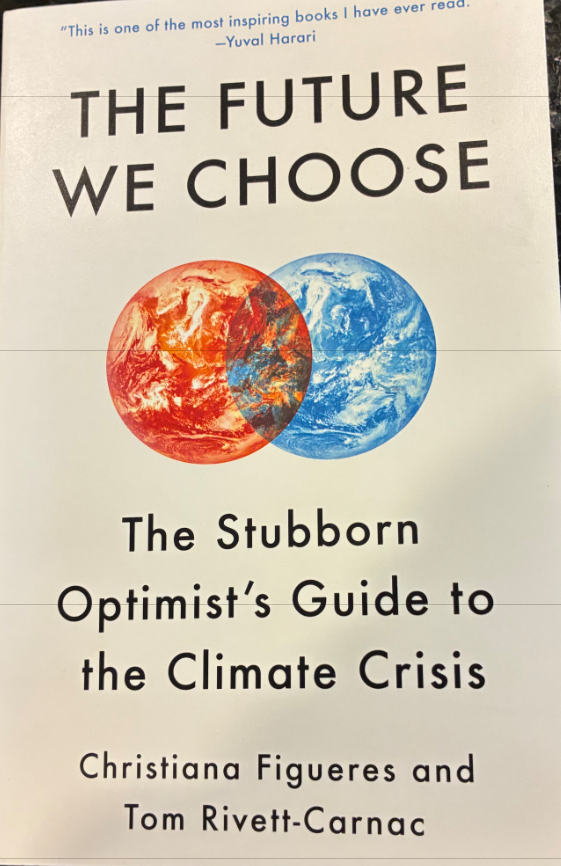Commentary
Food Waste's Impact on Climate Change

This is one in a continuing series of educational columns about fostering environmental stewardship and leadership coordinated by ACES —the Alliance of Climate and Environmental Stewards.
Food waste is a climate issue.
Nearly one-third of all food produced globally is lost or wasted, according to the Food and Agriculture Organization (FAO). In the U.S.,approximately 30 to 40 percent of the food supply goes to waste each year, as reported by the Environmental Protection Agency (EPA). When food is discarded in landfills, it decomposes and releases methane, a potent greenhouse gas that significantly contributes to climate change. Moreover, food waste leads to a major loss of resources—such as land, water, and energy—that are required to grow, process, and transport food.
Local Impact of Food Waste and Farmland Loss
In Massachusetts, particularly in Essex County, agriculture plays a key role in the local economy. However, the region faces a troubling decline in farmland. From 2012 to 2017, Essex County lost 39% of its farmland -- approximately 5,000 acres -- according to the American Farmland Trust. Without intervention, this trend is likely to continue, compounding food insecurity for one in three adults in northeastern Essex County (Greater Boston Food Bank). In addition, the loss of farmland affects local farmers' ability to maintain steady income streams.
Nourishing the North Shore (NNS), a Newburyport-based organization, is tackling these issues head on.
Through food access programs, NNS helps divert food waste and supports local farmers by purchasing fresh, locally grown produce. Generous donations, grants, and government funding support NNS’s mission to get healthy, local produce on every person’s plate.
How Nourishing the NorthShore Fights Food Insecurity and Supports Farms
NNS’s programs, including VEGOUT and Farm SHARE, address food waste, food insecurity, and local farm sustainability. By partnering with local farms, NNS collects excess crops that would otherwise be wasted and ensures that this produce reaches food-insecure families. With a recent USDA grant, NNS also purchases fresh produce directly from farms, and expects to inject over $100,000 into the local food economy in 2024.
VEGOUT Program
The VEGOUT program aggregates purchased and surplus produce from local farms and distributes it to twelve hunger-relief partners. This reduces food waste while providing low-income families with fresh, nutritious produce. In the 2024 growing season, the program is projected to distribute over 75,000 pounds—or 300,000servings—of local produce to families in need.
Farm SHARE Program
Through the Farm SHARE program, NNS supports farmers by purchasing shares of their harvests through Community Supported Agriculture (CSA) programs. This ensures farmers receive a reliable income while food-insecure households access affordable fresh produce. NNS also educates farmers and families on how to maximize government assistance programs like SNAP and HIP (Healthy Incentive Program), further improving access to healthy food.
By investing in local farms, NNS helps reduce waste and build a sustainable food economy that benefits everyone. We invite you to join us in this work to combat food insecurity and farmland loss.
September is Hunger Action Month: How You Can Help
In recognition of Hunger Action Month, Nourishing the North Shore urges the community to take action against hunger and climate change. Here’s how you can make a difference:
Donate: Your contributions help us purchase fresh, local produce and distribute it to families in need.
Volunteer: Your time can directly impact our food access programs.
Learn: Educate yourself about the one in three adults in our community facing food insecurity and the role food waste plays in climate change.
Attend our Fundraiser
Join us for the Sunset Harvest event on October 2nd, from 5:30 to 7:30 PM, at the Sunset Club on Plum Island. Enjoy seasonal bites and specialty drinks while learning more about our work. Tickets support our mission and help us continue making an impact.
Tany Blasko is the Executive Director of Nourishing the North Shore and can be reached at tany@nourishingthenorthshore.org. Please visit www.nourishingthenorthshore.org to take these action steps today!
ACES team members invite you to stay updated on environmental matters by subscribing to our monthly newsletter via the “Join Our List” link on this page. Please consider joining our community of stewards committed to Make Every Day Earth Day by contacting acesnewburyport@gmail.com. We can make a big difference together.
.svg)

.jpeg)



